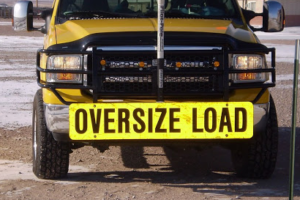In today’s competitive food service and manufacturing landscape, efficiency and uniformity are vital. A roti maker machine for industrial use has become an essential tool in commercial kitchens, catering services, and large food production units. These machines streamline the process of preparing rotis or chapatis, ensuring high output with consistent quality and hygiene.
What is an Industrial Roti Maker Machine?
An industrial roti maker machine is a heavy-duty appliance specifically designed to produce large quantities of rotis quickly and efficiently. Unlike domestic machines, which are limited in capacity, industrial models can manufacture hundreds or even thousands of rotis per hour.
They are often used in:
- Centralized kitchens
- Food supply chains
- Institutional canteens
- Commercial tiffin services
These machines can manage various stages of preparation such as pressing, heating, puffing, and roasting.
Why Choose an Industrial Roti Maker Machine?
1. High-Volume Production
Capable of delivering 500 to 3000 rotis per hour, these machines significantly boost productivity.
2. Consistent Quality
The roti maker ensures uniform thickness, round shape, and proper cooking, enhancing the end product’s quality and appeal.
3. Labor Efficiency
Reduces dependency on manual labor and minimizes human error, making operations more cost-effective and reliable.
4. Hygiene Assurance
Made with food-grade materials like stainless steel, these machines support clean and safe production, essential for commercial environments.
5. Time Savings
The machine speeds up operations by combining several processes—dough pressing, roasting, and puffing—into a single streamlined workflow.
Different Types of Industrial Roti Makers
1. Semi-Automatic Machines
These machines require limited manual handling and are ideal for medium-sized businesses. They offer control over some processes while automating key functions.
2. Fully Automatic Machines
Fully automated models handle every step from feeding dough to producing puffed rotis. These machines are best suited for large-scale operations requiring high-speed production.
3. Rotary Plate Machines
These machines use rotating heating plates for even roasting and are excellent for continuous production lines.
Important Features to Consider
Build Material
Opt for machines made of SS304 or SS316 stainless steel to ensure durability and food safety compliance.
Customizable Settings
Look for adjustable features that allow you to change the size, thickness, and roasting level to match customer or regional preferences.
Energy Source Compatibility
Select from machines powered by electricity or gas, based on your facility’s infrastructure and cost considerations.
Digital Control Panels
Machines with smart control panels or PLC systems improve ease of use and precision in temperature and timing.
Safety and Maintenance
Ensure the machine includes features like overheat protection, emergency stop buttons, and easy-clean mechanisms for safe daily use.
Sectors That Benefit from Industrial Roti Makers
- Corporate dining services
- Event catering companies
- Educational institution kitchens
- Hospitals and community kitchens
- Centralized food supply centers
- Restaurants with high footfall
These sectors benefit from the machine’s ability to produce fresh, uniform rotis consistently and rapidly.
Installation and Maintenance Guide
Installation Tips
- Ensure proper electrical or gas connection based on the machine’s requirement
- Allocate enough space for installation and operation
- Set up in a clean, ventilated area to maintain food safety
Maintenance Best Practices
- Clean the machine after each use with appropriate cleaning agents
- Periodically check mechanical parts and heating elements
- Follow the manufacturer’s guidelines for scheduled servicing and part replacement
Top Brands Offering Industrial Roti Machines
1. Qualimark
Trusted for reliability, efficient performance, and user-friendly designs.
2. Grace Food Processing Machinery
Offers machines with custom production lines and scalable options.
3. Fortune Engineering
Known for innovation in semi and fully automated roti-making solutions.
4. Revanth Engineering
Specializes in high-capacity, low-maintenance models for mass production environments.
Estimated Pricing of Industrial Roti Maker Machines
The price of an industrial roti maker varies based on capacity, features, and automation level:
- Semi-Automatic Models: ₹80,000 to ₹2,50,000
- Fully Automatic Units: ₹3,00,000 to ₹10,00,000+
- Customized Lines: ₹10,00,000 and above
Consider your production needs and available budget when selecting the right model.
How to Select the Right Machine for Your Business
Evaluate Daily Output
Start by identifying how many rotis your operation requires per hour or day.
Space and Infrastructure
Choose a machine compatible with your kitchen or production facility’s layout and utilities.
Ease of Operation
Pick machines with user-friendly controls to simplify training and reduce the learning curve.
After-Sales Support
Reliable customer support and availability of spare parts are critical for uninterrupted operations.
Warranty and Service
Always opt for machines that come with a solid warranty and maintenance plan.
Conclusion
Choosing the right industrial roti maker machine can significantly impact your food production efficiency, product quality, and overall profitability. Whether you operate a cloud kitchen, a large institutional dining setup, or a packaged food production unit, these machines offer long-term value, speed, and consistency.






